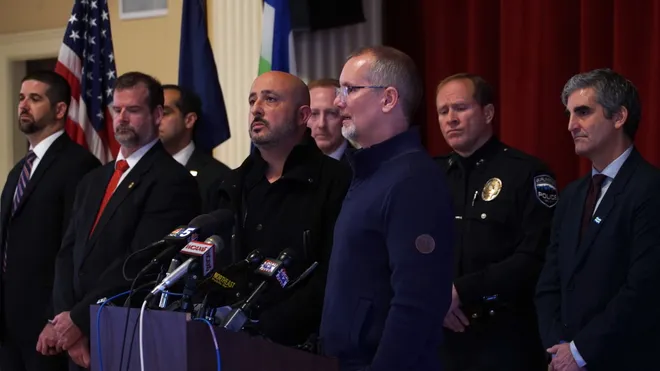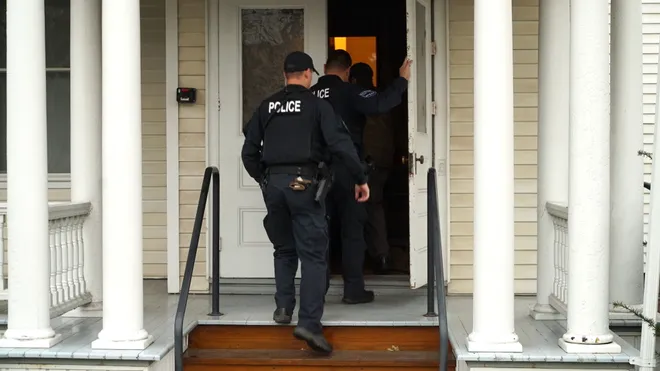Was shooting of 3 students of Palestinian descent a hate crime? Here's what Vermont law says.
On Nov. 25, three college students of Palestinian descent were shot while wearing traditional Palestinian scarves and speaking Arabic as they walked around the Vermont neighborhood of one man's grandmother, who hosted the three young men for Thanksgiving.
The next day, police arrested a white man named Jason Eaton on suspicion of the crime.
"The family’s fear is that this was motivated by hate, that these young men were targeted because they were Arabs,” said Rich Price, the uncle of one of the victims, at a press conference on Monday.
Officials in Burlington, Vermont, where the shooting took place, have yet to label this shooting a hate crime. A decision to do so would involve the FBI and federal authorities, who said they stand ready to investigate the shooting.
Eaton pleaded not guilty to three counts of attempted second-degree murder and is awaiting trial. Officials have yet to determine the motive behind the shooting.
"We are extremely concerned about the safety and well-being of our children,” the families of the victims wrote in a joint statement published on Nov. 26 on X, formerly known as Twitter, by the Institute for Middle East Understanding. “We call on law enforcement to conduct a thorough investigation, including treating this as a hate crime."

How does Vermont define hate crimes?
Vermont law defines a hate crime as any crime "motivated, in whole or in part, by the victim’s actual or perceived protected category." These protected categories include race, religion, national origin, disability, sex, sexual orientation and gender identity. Vermont is one of 16 U.S. states with hate crime laws that protect against all of these categories.
Under Vermont law, prosecutors can seek additional penalties, including longer sentences and higher fines, for perpetrators if the crime they committed constitutes a hate crime.
A hate crime victim can seek services from the Vermont Attorney General’s Civil Rights Unit including compensation from the offender, attorney's fees, and protective orders against the perpetrator. These protective orders can legally require the perpetrator to not further harass or contact the victim.

What types of hate crimes happen in Vermont?
In Vermont in 2020, 2021 and 2022, there were a combined total of 106 hate crimes committed on the basis of race, ethnicity or ancestry, according to the U.S. Department of Justice. These were the most common motivating factors for hate crimes in Vermont in those years by far.
In those same years in Vermont, there were 19 hate crimes targeting religion, 24 hate crimes targeting sexual orientation, and four hate crimes targeting disability.
Of all the hate crimes in those years statewide, 53% directly targeted people, while 44% targeted property.
The most common hate crimes in Vermont, according to the Vermont Attorney General's Office, are the following:
- Assaults, including hitting, pushing, spitting, and threats of immediate violence.
- Damage or destruction of property.
- Telephone harassment.
- "Disorderly Conduct," defined as loud or public threats and abuse.
Disclaimer: The copyright of this article belongs to the original author. Reposting this article is solely for the purpose of information dissemination and does not constitute any investment advice. If there is any infringement, please contact us immediately. We will make corrections or deletions as necessary. Thank you.





